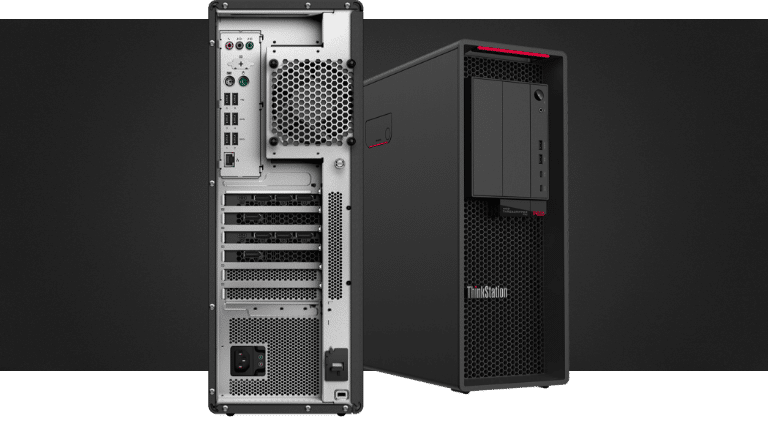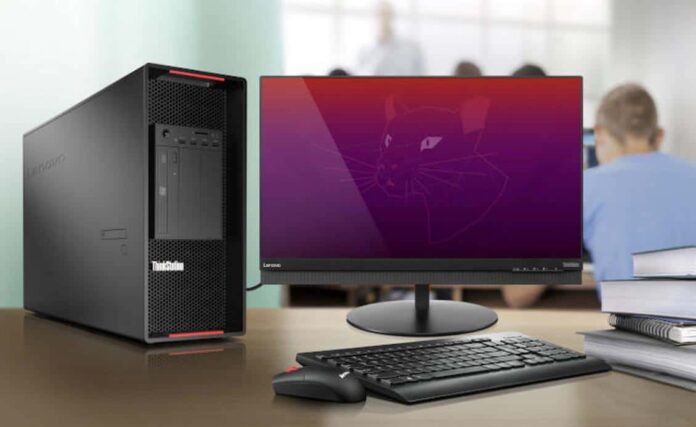Lenovo announced on Wednesday the launch of its Linux expansion program for Linux-ready devices (ThinkPad and ThinkStation) that it has pre-installed Canonical’s popular Ubuntu technology.
The business now adds Linux certification and easier deployment to its ThinkPad and ThinkStation Workstation range for developers and data scientists. Lenovo moves from Ubuntu and Red Hat to certify the entire Linux distribution workstation lineup. This is required for every model and setup.
Lenovo offers a large range of over 30 Linux Ready devices (Ubuntu) on Lenovo.com, previously exclusively available for corporations through a tailored offer. These include 13 P-Series ThinkStation and ThinkPad workstations and 14 other T, X, X1, and L-series ThinkPad laptops. Except for the version 18.04 L series, they all come with Ubuntu version 20.04 LTS.
A lot more streamlined Linux ready device experience
Lenovo’s aim of enabling smarter technology for everyone means “for everyone.” In June, our computer certification announcement was a step in the right direction to make it easier for customers to install Linux themselves. Igor Bergman, Vice President, says our objective is to minimize complexity and provide our clients with a superior experience in the Linux community.
He stated this is the next step for Linux-ready devices to be delivered from the box.
Check out: New Security vulnerabilities can put Linux and Windows users at Risk.
This extension means that open source software, libraries, and tools may be accessed more effectively to increase development productivity. This gives users who previously risked the often-consuming process of installing Linux on their own Lenovo P.C.s a smooth out-of-box experience. He added that this group of programmers, software developers, A.I. practitioners, and other Linux users could select from it.
“The expansion of Lenovo’s certified Ubuntu devices shows remarkable commitment to open source and Linux. This alliance allows companies to provide their employees with long-term stability, increased security, and easier I.T. management, which increasingly demands Linux from data scientists and developers for evolving workloads, “Dean Henrichsmeyer, engineering vice president, stated.
Lenovo eliminates misunderstandings among Linux customers and provides end-to-end web and telephone help for platform-related Linux issues by preloading these devices with the Ubuntu OEM version.
Next step to devices ready for Linux

The news follows Lenovo’s launch of the RedHat Linux-ready version of Fedora Linux desktop machines. Christian Schaller, Red Hat’s Senior Software Engineering Manager, claimed it was a significant deal earlier this month.
The events were a double milestone for Lenovo. This was the first time that Fedora delivered preloaded on a laptop from a leading supplier. One of the largest laptop manufacturers supplied luxurious laptops straight to customers with the Linux O.S. desktop.
Lenovo’s announcements were bittersweet both in September. Years ago, IBM originally launched ThinkPad notebooks preconfigured with Linux, followed by the Lenovo product line. Lenovo then dropped the Linux product line in 2008. IBM closed a significant US$34 billion acquisition of Red Hat in July of last year.
“Lenovo has taken measures for several years towards this growth, delivering Linux P.C.s preloaded for companies that apply specific quotes and certify various P.C.s for Linux needs. This would make it easier for people to install the O.S. on a Lenovo P.C., “Bergman told LinuxInsider.
Check out: Lenovo ThinkPad E585 Notebook 15.6″ Specifications
The Lenovo Workstation team issued a blog post announcing the Linux software extension in June. This includes the immediacy of a large range of pre-installed P.C.s for Linux, he added. “This announcement is the vow to define the available P.C.s both inside and outside the workstation line,” said Bergman.
In response to increasing demand from commercial clients, especially I.T. professionals and developers who belong to the world’s open-source community, Lenovo has started this expansion. Lenovo hopes to provide these people more alternatives via its intelligent technology, he stated.
Limited beginning Linux Ready devices Line
All Thinkpad laptops or ThinkSystem desktops are the latest Linux installations intended mostly for companies and I.T. professionals, particularly developers. Accommodating individuals in areas where Linux predominates, such as A.I./machine learning and HPC/supercomputing, should be desirable, according to Charles King (the principal analyst at Pund-IT).
“The company is wise to assess worldwide markets for business potential, so I look forward to very good results,” said LinuxInsider.
This year, Lenovo has actively developed its Linux offering through strategic collaborations with Fedora and Red Hat. However, several rivals lagged behind Linux, King remarked.
For the better part of a decade, Dell sold Linux-ready laptops to the development company via a program called Project Satellite. The enterprise supplies both Red Hat and Canonical certified slimline XP S13 desktops and tower P.C.s with muscular precision.
“In this regard, Lenovo’s decision to step deep into Fedora and Canonical may indicate that it accelerates the adoption of Linux ready P.C.s and laptops,” said King.
Why is Ubuntu the best solution?
“Ubuntu is a major, high-profile open-source operating system for Linux’s corporate network, desktop, cloud, and IoT. Lenovo worked closely with Canonical publishers from Ubuntu for many years, so it was natural to broaden our collaboration with them, “Bergman noted. Bergman noted.
Lenovo is also actively involved with various other open-source initiatives. Fedora, revealed earlier this year by Lenovo, is one of the main Linux groupings. Finally, we would like to encourage open source to satisfy its standards and ethos, “Bergman added. “
The default desktop is GNOME for all Ubuntu Linux configurations. You may not be required to reinstall the operating system on other P.C.s. You can install and select different desktops the same way Ubuntu has always supported them, even if you don’t like them when buying Lenovo. According to Lenovo, Ubuntu is entirely regular with no limits on Lenovo.
Global Accessibility
This global expansion includes the following ThinkPad and ThinkStation devices from Lenovo. They will be available worldwide from September 2020 and will be implemented in phases through 2021:
- ThinkPad T14 (Intel and AMD)
- ThinkPad T14s (Intel and AMD)
- ThinkPad T15p
- ThinkPad T15
- ThinkPad X13 (Intel and AMD)
- ThinkPad X13 Yoga
- ThinkPad X1 Extreme Gen 3
- ThinkPad X1 Carbon Gen 8
- ThinkPad X1 Yoga Gen 5
- ThinkPad L14
- ThinkPad L15
- ThinkPad P15s
- ThinkPad P15v
- ThinkPad P15
- ThinkPad P17
- ThinkPad P14s
- ThinkPad P1 Gen 3
- ThinkStation P340
- ThinkStation P340 Tiny
- ThinkStation P520c
- ThinkStation P520
- ThinkStation P720
- ThinkStation P920
- ThinkStation P620
Apart from ThinkPad L series laptops, the 20.04 LTS upgrade of Ubuntu published in April 2020 is valid for all P.C.s covered in this announcement. The ThinkPad L14 and L15 are available with version 18.04 LTS.
The release focuses on Lenovo’s commercial selection of P.C.s. The company continues to expand and shares more later, Bergman added.
Check out: Lenovo Legion 7i, Legion 5Pi & 5i gaming Laptops: specifications

